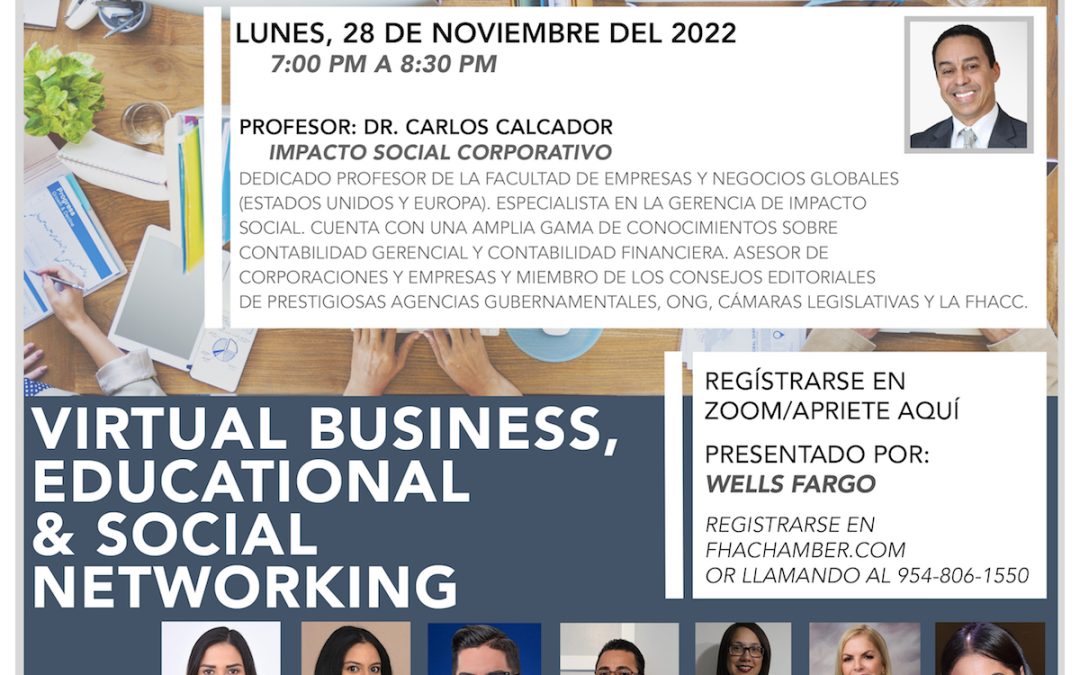By Dr. Carlos Calcador -Doctor in Social Impact Management
Register here for our upcoming event!
The COVID-19 pandemic’ exposed the fragility of our community ecosystem when the clash among the public health and economics interest. This phenomenon demonstrated clear-conflict at the time of
arguments in pros and cons about the reopening or closing of the commerce and school sector.
Meantime, the number of active workers fell by almost 25 million in the first quarter of 2020 as the outbreak
impacted the economy nationwide. Despite partial reopening, overall, job losses remain sizable, with
estimated employment falling by 13% from February to May (see next chart). The recession has not
equally impacted all citizens (PEW, 2020). Minorities and other groups such as Hispanic women,
migrants, young adults, and those with a lesser extent of education suffered more the impact.
Public health and economy experts warned about the menace of facing a severe pandemic, advising for a
greater degree of prevention and preparedness. Likewise, exposing how society’s leaders focused on their
issues, deciding to invest time, money, and political campaign to address the possibility of a future crisis
(Calcador, 2017). However, we might find room for differentiation like the case with the administration
of the City of West Palm Beach, which has studied how to solve social inequities due to equity barriers of
race and ethnicity. Impacting areas of criminal justice, real-estate-housing, health, finance, and access to
effective education. The 2020 COVID-19 pandemic and the rise of social movements to advance racial
justice have highlighted the wide disparities in health outcomes between White American, Afro-American, and Hispanic populations, particularly Black and Native. These unbalanced outcomes relate to inequalities in the bases of healthiness—environment, community, and financial aspects, such as housing,
proceeds, labor, and education, that outline strong communities or healthy communities.
Sustainable Education. In consideration of these emerging issues, stakeholders such as parents
and teachers, politicians, lawmakers, SME owners, and overall entrepreneurs must define what is
a strong- community its objective, and the benefits of the synergies aroused from the interaction
and involvement among the main characters of the civil society. Community, as an individual, is a
vivid entity, whose welfare is the result of a complicated system comprised of factors and events, some of
which it deliberately regulates, and others do not. Individuals living in strong communities feel empathy
for others. People from strong- communities are individuals with none or different levels of education
but capable of socializing securely and being involved in the well-being of the community. To sum up, a strong
community is a neighborhood that provides all citizens with a decent quality of life, a balance among
individuals, the environment, and the business model; aiming for a sustainable ecosystem—financial,
physical, ecological, communal, and political.
Get Info and Guide for Business establishing
Entrepreneurial Education-Entrepreneurs contradictory, are increasingly expected to take responsibility
for the social, environmental, and economic impacts. Always assuming risks yet, they
cannot directly control many variables, whether due to impacts-falling upstream or downstream in their
value chain, or due to their systemic nature, or unexpected natural elements, such as the phenomenon of
COVID -19.
Follow us to read about the Multi-cultural festival held in Palm Beach
Finally, I propose sustainable education models, that aim to develop entrepreneurship at early stages, an
essential tool for achieving a more sustainable world, engage with human rights, community and
voluntary sectors, and business associations. Producing leaders caring about the balance between the economy,
society, and environment. Funding for entrepreneurship has never been as crucial as today. Reinforcing
entrepreneurship education in schools, vocational training centers, and universities will have a positive
social impact on the entrepreneurial synergy of our economies

